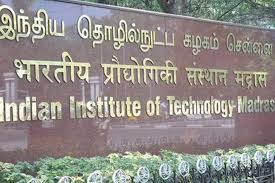 The International Monetary Fund said rising debt levels in major Asian economies have become a significant risk, even as the region remains on track to post solid economic growth.
The International Monetary Fund said rising debt levels in major Asian economies have become a significant risk, even as the region remains on track to post solid economic growth.
Asia-Pacific economies as a group will decelerate only slightly, to 5.3 percent this year and next, from 5.4 percent in 2015, the Washington-based fund said in an annual regional report published Tuesday. The IMF last month trimmed its global forecasts, and said the world was more exposed to negative shocks thanks to a prolonged weaker pace of expansion.
In Asia, domestic demand, particularly consumption, should be a key driver, but worsening global conditions and high leverage in the region may curb growth, the fund said.
“Downside risks continue to dominate the economic landscape,” the IMF said. “In particular, the turning of the credit and financial cycles amid high debt poses a significant risk to growth in Asia, especially because debt levels have increased markedly over the past decade across most of the major economies in the region, including China and Japan.”
Downward Spiral
The IMF’s singling out of debt as a growing worry is in line with recent statements. The institution warned in a report last month against what it called a self-reinforcing “spiral” of weakening growth and rising debt that could require a coordinated response by the world’s major economies.
In Asia, the IMF said Tuesday, debt levels are high, while credit growth and corporate issuance have remained strong as companies try to take advantage of still-favorable global liquidity conditions.
The ratio of corporate debt to gross domestic product has risen faster in Asia than anywhere else in the world since 2009, the IMF added, and the measure is particularly elevated in China and South Korea. Household debt is a growing worry in Hong Kong, Malaysia, Singapore and Thailand, the IMF said.
“Although part of the credit growth reflects financial deepening, some growth has been above that implied by fundamentals,” the IMF said. Financial deepening refers to the spreading availability and use of banking.
Reform Refrain
As in previous reports, the IMF called on policy makers to push ahead with structural reforms to raise productivity, including measures to boost consumption in China. The fund also flagged the risk of an over-reliance on monetary or credit policies to hold up demand, particularly if job losses in manufacturing exceed the gains in services.
On Japan, the only developed economy where it anticipates economic contraction next year, the IMF recommended moves to reduce the difference between life-time and non-regular labor contracts to allow for higher wage increases. It also suggested deregulation and a drive to increase female labor market participation.
The IMF said that recent economic policies in Japan — so-called “Abenomics” — have been “supportive,” but added that “durable gains in growth” are yet to be seen.
The fund also warned against an excess reliance on monetary stimulus. The remark comes less than a week after a surprising Bank of Japan decision to hold off on stepping up its monetary expansion jolted markets and led to a surge of the yen against the U.S. dollar.
Source: http://www.bloomberg.com/news/articles/2016-05-03/imf-sees-rising-debt-challenge-as-asia-stays-global-outperformer


